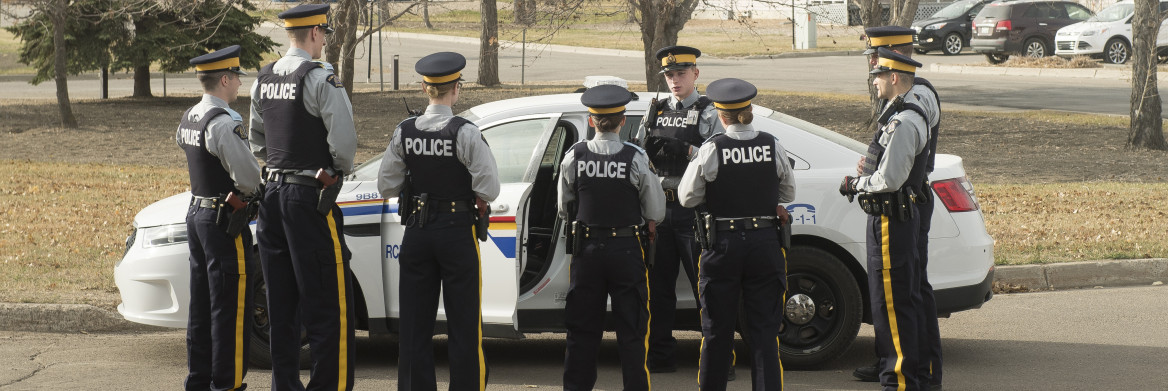Related link
The University of Regina has begun its study on how policing affects the mental health of RCMP officers.
Research into the operational stress injuries (OSIs) of police officers, including post-traumatic stress disorder (PTSD), is being conducted at the RCMP's Training Academy, known as Depot. Later this year, all RCMP cadets starting their training will have the chance to participate in the study.
Led by Dr. Nicholas Carleton at the Canadian Institute of Public Safety Research and Treatment (CIPSRT) in Regina, Sask., the project aims to identify psychological and physiological signs of trauma and stress-related disorders.
The study is part of the RCMP's mental health strategy for its officers and employees. The results of the RCMP Longitudinal Study of Operational Stress Injuries are expected to help develop long-term plans to support the overall mental health of RCMP officers and further reduce stigma around mental-health issues.
While participation in the study is voluntary, the research team hopes that all cadets participate.
The research project is designed to collect critically necessary data and identify a potential new gold standard in mental-health care for all participants. By becoming involved in the project, participants will be receiving unprecedented levels of mental-health attention.
Participating cadets will contribute in a number of ways. They will be supplied with smartphones and watches, and a shirt that will monitor real-time heart rate. This technology will allow researchers to monitor physiological changes as they go about their regular duties, both at Depot and in the field.
The cadets will also complete several psychological assessments and provide regular diary notes on a daily or monthly basis.
Some cadets will receive specially designed psychological training that they'll be able to use in both their professional and personal lives. It's believed that those who participate in the study will be better protected against PTSD, and will be better prepared to deal with the realities of police work.
While the commitment to the project will be five and a half years, researchers hope that participants will benefit throughout their careers.
The RCMP recognizes the importance of good mental health. While the RCMP has already put in place various prevention and intervention measures designed to improve psychological health and safety for its employees, it continues to lose the services of many officers as a result of mental health-related issues.
According to Veterans Affairs Canada, in 2014, 41.7 per cent of long-term disability claims for RCMP officers who were no longer with the force, were related to mental-health conditions. A recent national study shows that substantial portions of participating RCMP officers screened positive for PTSD (30 per cent), major depressive disorder (32 per cent), and generalized anxiety disorder (23 per cent), among other mental-health challenges (Carleton et al., in press).
The University of Regina is recognized for its work in clinical psychology, including PTSD and other OSIs. The RCMP Longitudinal Study of Operational Stress Injuries aligns with the university's research priority areas and builds on the ongoing collaborations with the RCMP Training Academy.
In addition, the University of Regina is the administrative hub for the Canadian Institute for Public Safety Research and Treatment (CIPSRT), which works with existing academic research resources and helps to develop new research and research capacity.
The research project has the potential to benefit the mental health of the RCMP. It will inform policies and programming by helping to build a National Standard of Canada Psychological Health and Safety in the Workplace into actionable and measurable improvements — first for the RCMP and ultimately for all Canadian public safety personnel.
